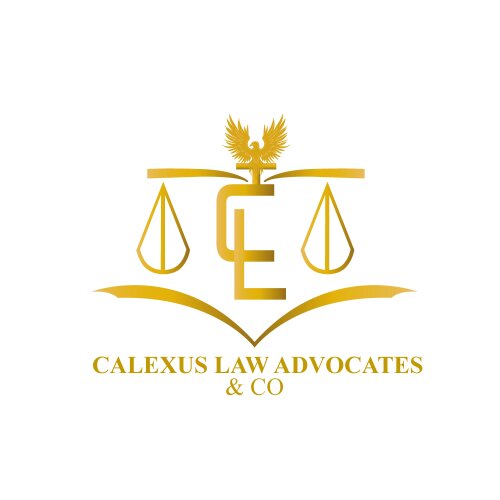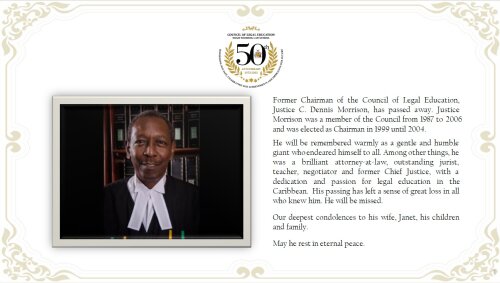Best Adoption Lawyers in Trinidad and Tobago
Share your needs with us, get contacted by law firms.
Free. Takes 2 min.
Free Guide to Hiring a Family Lawyer
Or refine your search by selecting a city:
List of the best lawyers in Trinidad and Tobago
About Adoption Law in Trinidad and Tobago
Adoption in Trinidad and Tobago is a legal process that creates a permanent, legally recognized parent-child relationship between individuals who are not biologically related. The process is regulated by the Adoption of Children Act, which ensures that the welfare of the child is the paramount consideration in any adoption proceedings. Potential adoptive parents must meet certain criteria and undergo a thorough assessment to ensure they can provide a nurturing home environment. Adoption can be local, where the child resides in Trinidad and Tobago, or international, involving foreign-born children being adopted into Trinidad and Tobago.
Why You May Need a Lawyer
There are several reasons one may require legal assistance in the field of adoption:
- Navigating the complexities of the adoption process and ensuring compliance with legal requirements.
- Understanding the rights and responsibilities of both biological and adoptive parents.
- Handling disputes or complications that may arise during the adoption process.
- Facilitating international adoptions which may involve additional legal considerations.
- Interpreting specific clauses in the adoption agreement or dealing with post-adoption issues.
Local Laws Overview
The Adoption of Children Act governs adoption procedures in Trinidad and Tobago. Key aspects include:
- Adoptive parents must be at least 21 years old and at least 18 years older than the child.
- Consent must be obtained from the child’s biological parents or guardians unless waived by the court under specific circumstances.
- A thorough home study assessment is conducted to evaluate the suitability of adoptive parents.
- The adoption must be approved by the Adoption Board, which is responsible for ensuring all procedures are in the child's best interests.
- Post-adoption, the order is final, and the child is considered a legal child of the adoptive parents with all associated rights and obligations.
Frequently Asked Questions
1. What is the first step in the adoption process?
The first step is usually to contact the Adoption Board to express interest and obtain information on starting the process.
2. How long does the adoption process take?
The process can vary, typically taking several months to a year, depending on the circumstances of each case.
3. Can single individuals adopt a child in Trinidad and Tobago?
Yes, single individuals can adopt as long as they meet the age and assessment requirements.
4. Do I need the biological parents' consent to adopt?
Generally, yes, unless the court waives this requirement for certain compelling reasons.
5. Are there any financial assistance programs for adoptive parents?
Currently, there are no formal financial assistance programs, but some non-profit organizations may offer aid.
6. What is a home study, and why is it necessary?
A home study is an assessment conducted to ensure the adoptee will be placed in a safe and supportive environment.
7. Can adopted children inherit from their adoptive parents?
Yes, adopted children have full inheritance rights as any biological children would.
8. Is it possible to adopt a child from another country?
Yes, international adoptions are possible but may involve additional legal and procedural requirements.
9. What happens if the adoption is contested?
If contested, the court will review the case to ensure the child's best interests are paramount in any decision made.
10. Can adoption orders be reversed?
Once finalized, adoption orders are generally irreversible, unless in cases of fraud or serious irregularities.
Additional Resources
Here are some resources that may be helpful:
- The Adoption Board of Trinidad and Tobago: The official body overseeing adoptions.
- Ministry of Social Development and Family Services: Provides guidance and support for families.
- Trinidad and Tobago Child Welfare League: Offers resources and advocacy for child welfare.
Next Steps
If you need legal assistance in adoption, consider taking these steps:
- Contact the Adoption Board for preliminary information and guidance.
- Consult with a lawyer specializing in family law to explore your options and understand your rights and obligations fully.
- Prepare necessary documents and evidence required for the application process.
- Ensure that all parties are informed and have the necessary legal support to facilitate a smooth adoption process.
Lawzana helps you find the best lawyers and law firms in Trinidad and Tobago through a curated and pre-screened list of qualified legal professionals. Our platform offers rankings and detailed profiles of attorneys and law firms, allowing you to compare based on practice areas, including Adoption, experience, and client feedback.
Each profile includes a description of the firm's areas of practice, client reviews, team members and partners, year of establishment, spoken languages, office locations, contact information, social media presence, and any published articles or resources. Most firms on our platform speak English and are experienced in both local and international legal matters.
Get a quote from top-rated law firms in Trinidad and Tobago — quickly, securely, and without unnecessary hassle.
Disclaimer:
The information provided on this page is for general informational purposes only and does not constitute legal advice. While we strive to ensure the accuracy and relevance of the content, legal information may change over time, and interpretations of the law can vary. You should always consult with a qualified legal professional for advice specific to your situation.
We disclaim all liability for actions taken or not taken based on the content of this page. If you believe any information is incorrect or outdated, please contact us, and we will review and update it where appropriate.
Browse adoption law firms by city in Trinidad and Tobago
Refine your search by selecting a city.















